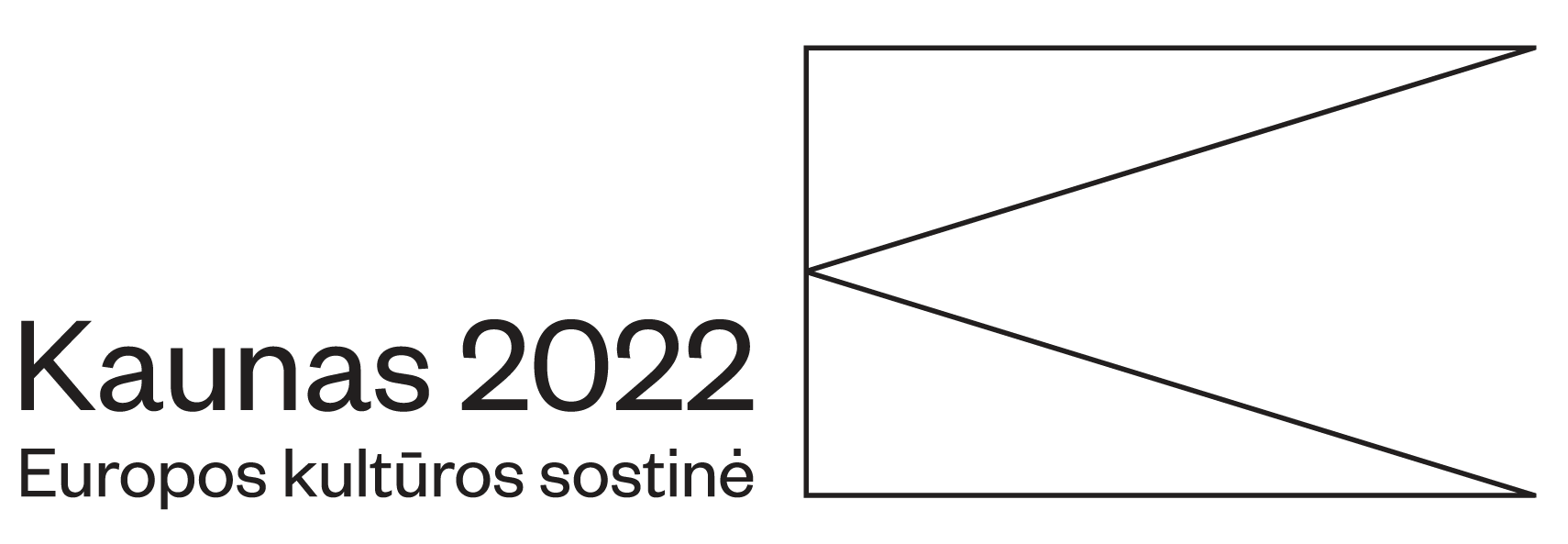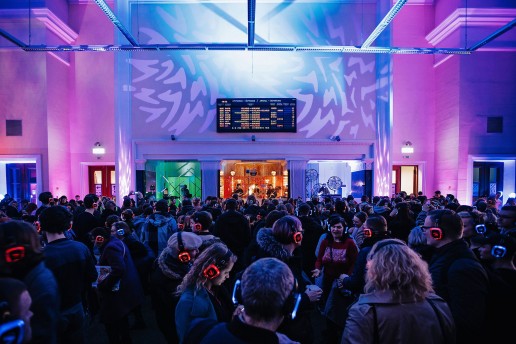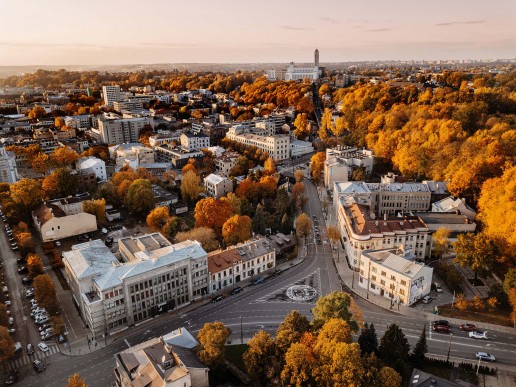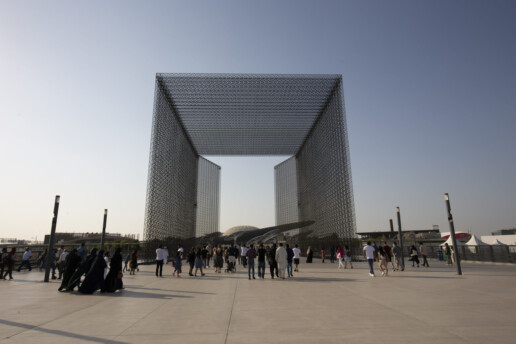Universal Design Helps Shaping a Sustainable, Accessible, Functional and Aesthetical Contemporary Capital
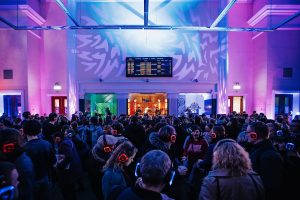
Happiness is an emotion one can project. Now that’s an ambitious statement, right? This is precisely why ‘Designing Happiness’ is one of the key pillars supporting the project of Kaunas – European Capital of Culture 2022.
In 2015, Kaunas became the first city in the region to become the UNESCO City of Design. The title inspires to continue shaping a comfortable contemporary city and educating its residents with the help of quality international examples, news and ideas. Starting with audience development and not forgetting the importance of nature, design as a tool is vital for the success of all programmes of Kaunas 2022. It’s now time to look at ‘Designing Happiness’ itself.
International Day of Happiness
First celebrated in Kaunas three years ago, the Day of Happiness is one of the great success stories of the Kaunas 2022 project. This day became an enormous educational project that taught the people of our city the benefit of attentiveness to others, attention to nuance, and sensitivity to detail. It’s evident the festival will remain in Kaunas even after the conclusion of the European Capital of Culture programme.
The Day of Happiness joins thousands of people in various companies, cultural organisations, housing associations, and school and kindergarten communities. The program explores a new theme every year, and in 2022 Kaunas celebrate the happiness of being part of a community.
The official date of the festivity is March 20; before it, an international congress ‘On Happiness. Presuppositions 2022’ will take place in Kaunas. With the help of science and art, this congress will seek to examine and test the presuppositions of happiness.
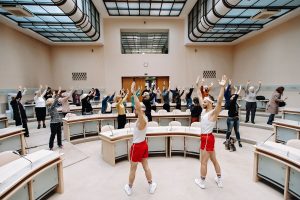
Unlocking Happiness for all
In 2020, an online culture accessibility guide, ‘Kaunas for all’, was published. It is the first publication of its kind dedicated to cultural organisations, objects managers, and event organisers to make cultural objects and events more accessible for all social groups, namely those with special needs.
The guide is free to use for all cultural organisations, event programmers, and curators in Lithuania and other countries; it aims to rethink one’s surroundings and open oneself to new audiences. The guide is accompanied by a signage system suitable for all cultural institutions and helps them broaden their audiences.

2022 as a Year of Culmination
One of the most intriguing ideas under the umbrella of ‘Designing Happiness’ is Nemuno7, a river engineering and landscape design project that is unique in Europe and will serve as a public cultural space.
Nemuno7 will be officially opened on May 22. Located on the bank of river Nemunas near Zapyškis, a town in Kaunas District, the object created on a Czechoslovak construction dredger first put in use in 1965 combines technological history, historical heritage, and contemporary architecture. It is expected to become a new cultural attraction in Kaunas for locals and tourists. It will also have space for artistic residencies. Also, continuing on the subject of sustainability, the site will be home to pioneer plants that grow in open habitats and quickly adapt to extreme cultivation conditions.
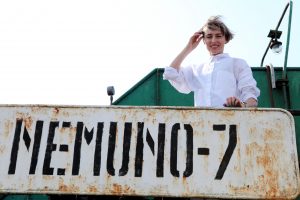
The third Landscape Design Festival Magenta that explores the possibilities of urban nature will reach its peak in 2022. Audiences will be able to view installations, objects, and other works of art created by international teams of artists, architects, and landscape designers from Lithuania, Poland, Chile, Spain, Germany, Serbia, Mexico, the Netherlands, and other countries. These will all be works specially created for an urban context.
The festival’s events will span a broad spectrum, including education programmes, public discussions for city residents; public discussions about business, city government, industry, and society; tours; interdisciplinary projects; events; tactical urbanism; and the creation of public spaces and landscape design sites.
An International Meeting Spot
For 2022, global design organisations, including ICoD (International Council of Design), BEDA (Bureau of European Design Associations), EIDD (Design for All Europe) and UNESCO, have chosen Kaunas, as the European Capital of Culture, as the site to organise their most important annual events. This will be a unique opportunity to present Kaunas on the international stage and feel that a city is about co-creating.
Time to book those tickets – for October, at least. This will be the month when the Assembly of International Design Networks, the Lithuanian national Good Design prize Awards, and the International Kaunas Festival of Design will occur. The latter will be an exclusive series of interdisciplinary events – exhibitions, workshops, meetings, conferences, and installations in the city’s public spaces – that will invite the city’s residents and visitors to learn more about the roots of Kaunas’ authentic design, the creators of contemporary Lithuanian design, design innovations, and progressive practices used by designers abroad.

For the first time, Kaunas will host the unique design innovation programme 5X5®, created by Designregio Kortrijk vzw of Flanders, Belgium. This will be an exceptional opportunity for Kaunas-based companies doing business in different sectors to collaborate for one year with designers based on a patented 12-step programme in the development of new projects and the refining of already existing endeavours, services, or processes. An exhibition held during the Kaunas Design Festival will present the results of a joint Flemish and Lithuanian 5X5® design innovation programme.
The programme is not the only example of a cultural collaboration between Kortrijk and Kaunas, both members of the UNESCO Cities of Design Network. To enhance the friendship, Kortrijk will be sending an enormous letter K, also known as K-Totem, to Kaunas. Decorated with constantly changing visual designs in Kaunas, the K-Totem will be installed in the Lithuanian Constituent Seimas square in the Old Town. The multifunctional sculpture already appreciated by the Belgian crowd will become a space for self-expression by local graphic designers and illustrators. In fact, Flemish artists will decorate the Kaunasian K-Totem, while Lithuanian creators will travel to do that in Kortrijk.
Revisiting History
The traditional Kaunas International Bone China Symposium will present a unique programme for 2022. In October, the modernist Kaunas Post Office will host an exhibition of unique individual and serial ceramic pieces and original designs assembled from the legendary Jiesia ceramics factory in Kaunas.
An exhibition in the shop windows of Laisvės alėja, the main pedestrian boulevard in Kaunas, will help establish an even more intimate relationship with Lithuanian design heritage. Called precisely that, ‘Lithuanian Design: from Temporary to Contemporary’, it will explore different fields of design, including furniture, graphic design, lighting fixtures, and textiles, as well as key historical periods. All year round, from January 22 to October 20!
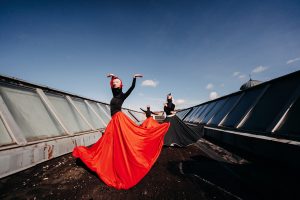
Moreover, an interactive exhibition ‘Kaunas Assorti: Graphic Design (Hi)Stories and Their Actualisation’, an interactive exhibition’ will land in Kaunas Picture Gallery. It will present the history of Lithuanian graphic design in the latter half of the 20th century. Posters, sketches, containers, and brand designs will speak, in their own unique way, about a particular time, identity, and sustainability, echoing issues relevant to the present day.
Next year, Kaunas and Kaunas district will become one big European stage and turn the city into a place where you will not escape culture. More than 40 festivals, 60 exhibitions, 250 performing arts events (of which more than 50 are premieres), and over 250 concerts are planned to take place in 2022. It is going to be the year-long non-stop biggest co-creative festival of all. Come co-create and celebrate with us! https://kaunas2022.eu/programa/
https://dizainaskaune.lt/en/
International Assembly of Design Networks will invite to get to know Kaunas better
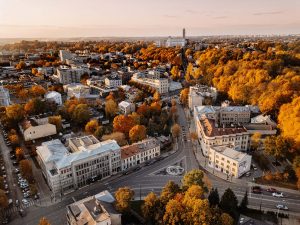
In the Australian city of Geelong, at the annual and virtual meeting of the UNESCO Design Cities Network members, the participants unanimously decided to entrust the 2022 yearly congress to Kaunas. The meeting, which creates an exchange, provides excellent opportunities to present Kaunas more widely and meet specialists who will consult Kaunas on social, environmental, cultural, and urban design issues, which will occur precisely after a year.
The Network of Creative Cities seeks to develop transnational partnerships between cities that have chosen creativity as their strategic development factor in creating sustainable and innovative cities. The network brings together the private and public sectors, professionals, communities, and institutions to share experiences, resources, and knowledge with other network members and foster the growth and emergence of local creative industries.
The event in Geelong provided an opportunity for communities from all 40 design cities to participate and learn about the many projects in the network of creative cities. This year's theme was REIMAGINE, RENEW, REGENERATE, inviting design experts to share and talk about projects that have raised cultural, creative, social, and sustainable initiatives and looked at new challenges or opportunities.
During the meeting, Kaunas submitted a proposal to organize next year's annual network meeting in Kaunas. "Although the format of conferences and the organization of international meetings are in many cases beneficial for a small group of people, this annual Congress of Design Cities can become especially important and successful for Kaunas and its guests. We have been in the UNESCO Network of Design Cities since 2015, but the city neither showed initiative nor participated in other projects for a long time. As a result, we are in a network where we are not known, where we are rarely noticed, and where we have not yet shown our potential. Therefore, this annual congress is an excellent opportunity to raise our heads and display our talents and professionalism to the network members, get acquainted with the design sector, and show Lithuania's attractiveness and creativity through Kaunas city and district. Also, Kaunas benefits by gaining experience from highly active cities in the field of design, learning from successful projects implemented in the world, and establishing economic, cultural, and social contacts with potential partners or customers from abroad." said Gediminas Banaitis-Skrandis, project curator of Kaunas 2022.
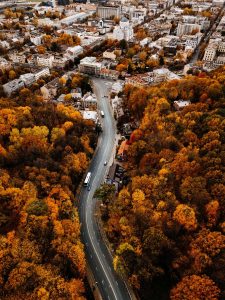
The meeting of the UNESCO Design Cities Network will take place at the same time as the International Assembly of Design Networks "Kaunas - European Capital of Culture 2022", which will also be attended by such global design networks as ICoD (International Council of Design), BEDA (Bureau of European Design Associations ), EIDD (Design for All Europe), will present a comprehensive program and provide an opportunity to learn about the specificities of a multicultural city. "The International Assembly of Design Networks is a unique occasion where the largest organizations in the design sector meet simultaneously in a joint event. This is an opportunity that no member of the invited organizations would want to miss because it will be the first such design Olympics," added G. Banaitis-Skrandis.
During next year's meeting, participants will be involved in Kaunas Design Festival, Lithuanian design exhibition "From Temporary to Contemporary," Landscape Design Festival "MAGENTA," and other projects developed with other partner cities. This is a considerable achievement for Kaunas and its future, which will open wider opportunities, become the beginning of international project ideas and reveal the city through innovative and creative activities.
Genius generates beauty: the experiences of the European Capitals of Culture at Expo 2020 Dubai
The “European Capitals of Culture Day at the Universal Exhibition 2020 Dubai” is an initiative that Matera-Basilicata 2019 Foundation is organising on the 30th October 2021 in the Italy Pavilion at the Expo of Dubai, in partnership with the Commissioner General of Italy and under the patronage of the European Commission. The event is of highly symbolic value considering the fact that it will see the European Capitals of Culture reunite for the first time at the biggest international event post pandemic. Taking its cue from the concept that inspired the Italy Pavilion itself, the initiative is designed to present the European Capitals of Culture that, with their enormous and varied potential of cultural experiences and practices, transform cities, generating beauty and inclusiveness.
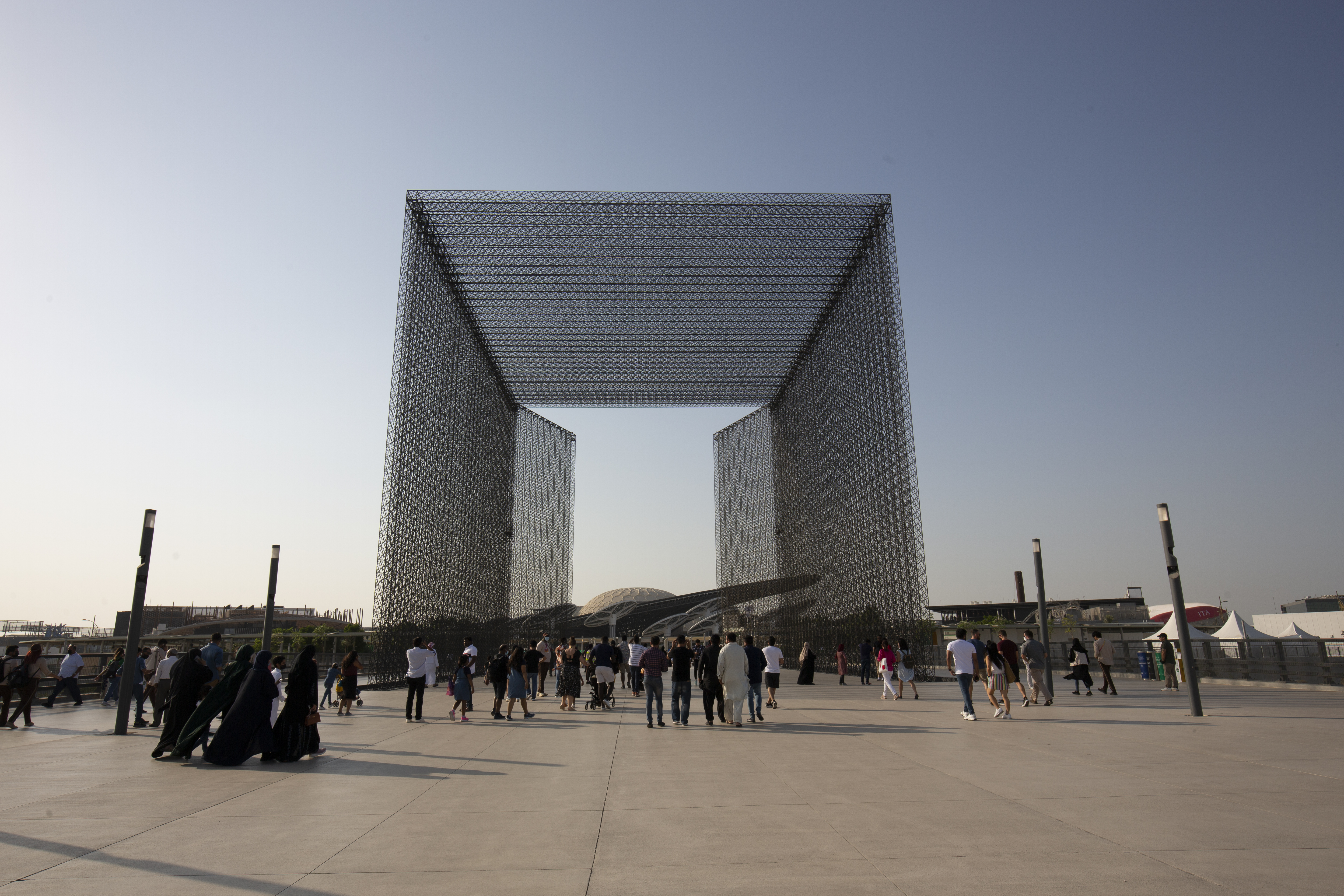
The day’s events will start at 11:00 am (9:00 am CET), in the Anfiteatro space, with an International Forum on “The European Capitals of Culture and the New European Bauhaus: how to build beautiful, sustainable, inclusive places”. The conference aims to bring to the fore the contribution of the Capitals to the New European Bauhaus, an innovative initiative launched by the European Commission aimed at fostering cooperation between thinkers and doers in imagining and creating places that are “beautiful for our eyes, minds and souls”. The examples that will be presented will show how the Capitals are redesigning our living spaces by bridging the worlds of culture and science, getting citizens involved, leaving no one behind and promoting accessibility. The conference, moderated by the RAI journalist Barbara Carfagna, will be opened by Paolo Glisenti, Commissioner General of the Italy Pavilion, followed by Benedetto Della Vedova, Deputy Foreign Minister, Barbara Gessler, Head of the “Creative Europe and ECoC programme” Unit - European Commission. Rossella Tarantino, Development and Relations Manager of Matera-Basilicata 2019 Foundation, will introduce the key topics of the Forum, followed by the keynote speaker Carlo Ratti, director of Senseable City Lab at MIT, who is also one of the designers of the Italy Pavilion. The European Capitals of Culture projects will be presented by Thierry Kruchten, Head of Tourism, Mobility and Sustainable Development - Esch 2022, Sara Vuletić, Programme Director - Novi Sad 2022, Dovilė Butnoriūtė, Head of International Relations- Kaunas 2022, Kaja Širok, Head of the EPICenter programme of a joint cross-border European Capital of Culture - Nova Gorica 2025, Rita Orlando, Project Manager at Open Design School of the Matera-Basilicata 2019 Foundation. Concluding remarks will be drawn by the Mayor of Matera, Domenico Bennardi.
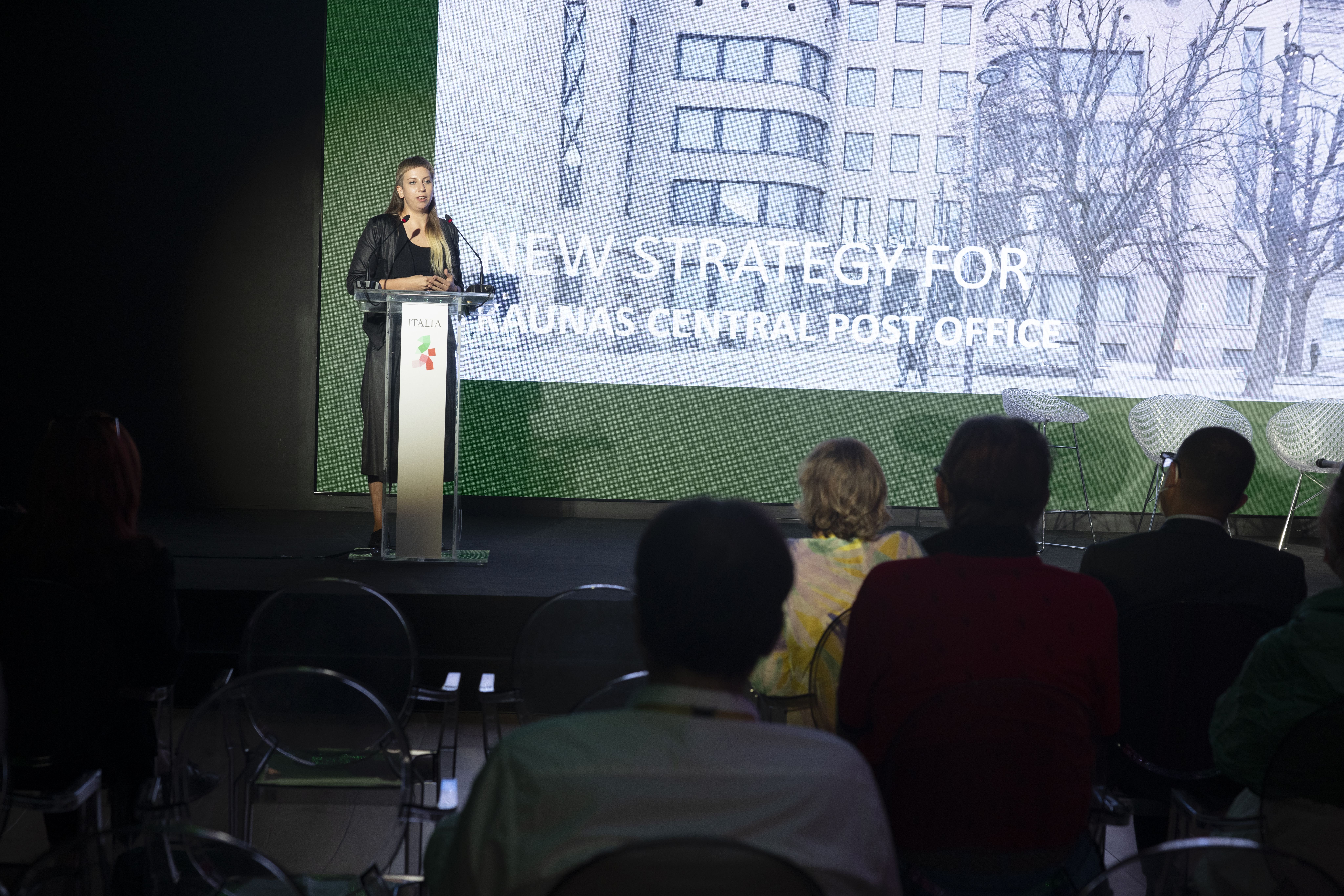
“Urban/rural: designing through culture new connections between overcrowded and sparsely populated areas” will be the focus of the second International Forum, scheduled for 4:00 pm (2:00 pm CET) in the Anfiteatro space. This conference will centre on several urgent issues raised by the pandemic, such as the need to imagine a more sustainable world based on a more balanced connection between these geographic areas, the role that culture can have in regenerating rural areas, overcoming stereotypes and building contemporary narratives about the resilient communities inhabiting these areas, and the “temporary citizenship” of artists and 21st century nomadic communities as a new way of repopulating these places.The Forum, opened by Rossella Tarantino and moderated by Beatriz Garcia, Associate Director of the Centre for Cultural Value at the Universityof Leeds, will host the following speakers: Chryssa Martini, Director of Premises & Infrastructure, Location Planning of the Artistic Programme - Eleusi 2022, Friderika Mike, Director of Programme Development - Veszprem Balaton 2023, Mika Vierimaa, Head of Administration- Oulu 2026, Giovanni Oliva, Director General of the Matera-Basilicata 2019 Foundation. The Mayor of Pietrapertosa, Maria Cavuoti, and the Mayor of Tricarico, Vincenzo Carbone, two of the Lucanian communities that still retain traces of Arab culture, will also be in attendance.
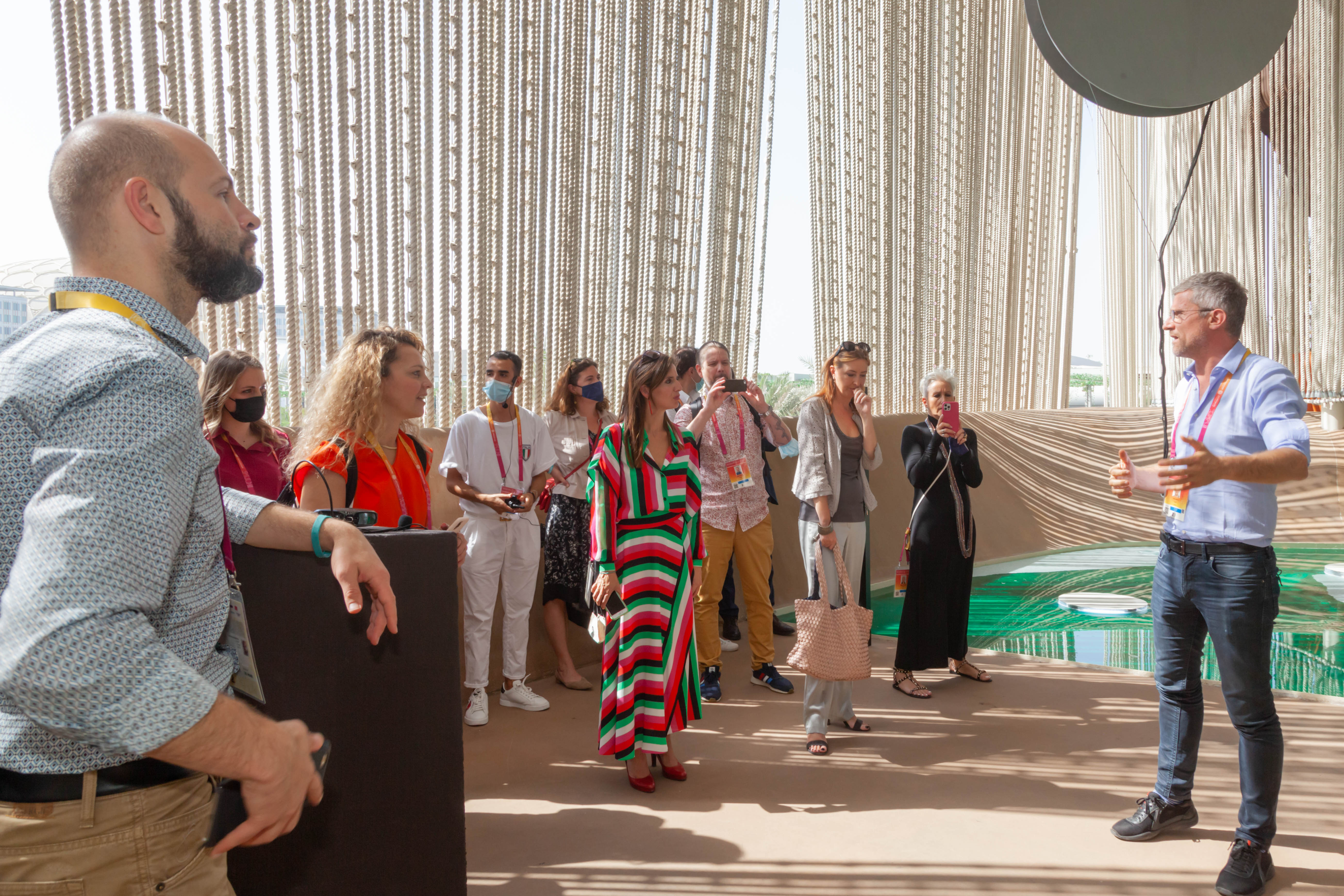
Both forums will be streamed on Italy Expo’s and Matera 2019’s Facebook pages, as well as on the pages of the European Capitals of Culture involved.
The Accademia space will be host to an event (with both a morning and afternoon session) called “The ECoC game”, a moving workshop on cultural geography developed by the Open Design School, a Matera-Basilicata 2019 Foundation initiative offering best practices at an international level in the field of new design practices, which has also become a partner of the New European Bauhaus. By playing live in an immersive and engaging way, Expo visitors will be able to embark on an imaginary journey into present and past European Capitals of Culture, in order to discover the highlights, curiosities and characters connected to the history of this project, which is fundamental to the lives of dozens of cities across the entire European continent.
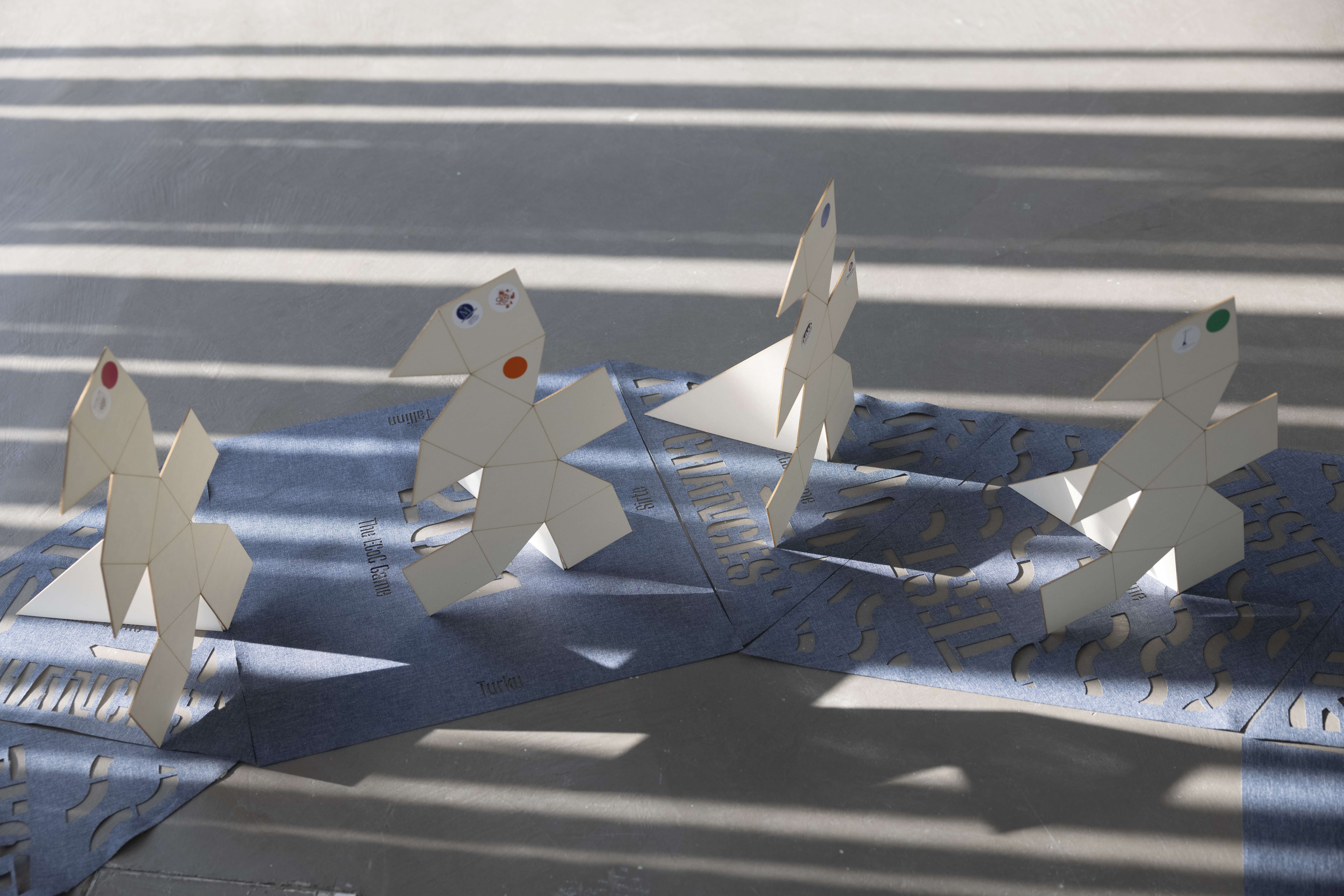
The day’s events will end in the Anfiteatro space at 6:30 pm with the performance of “Dubai Session”, presented by Open Sound, an original project by Multietnica, co-produced by the Foundation for the official programme of Matera European Capital of Culture 2019. The format creates new repertories and stages original collective performances based on the fusion of contemporary electronic music and traditional sounds, transforming a musical archive into a promise for the future. The performance designed for Expo 2020 will be a moment of acoustic dialogue which will offer a live return to the result of the artistic co-creation and cultural hybridisation with Arab culture, generated by the encounter between Gaetano Dragotta, known as go-Dratta (the producer), the Arab musician Imad Kawala (caval) and the traditional percussionists from Basilicata - Agostino Cortese (percussion and cupa cupa friction drum) and Alberico Larato (zampogna bagpipe and lyre). The event will open with the spoken DJ set “Road to Open Sound” by Alioscia Bisceglia, where he, in the dual role of performer and project ambassador, will narrate, using music and words, the genesis and journey of Open Sound from 2019 to today.
